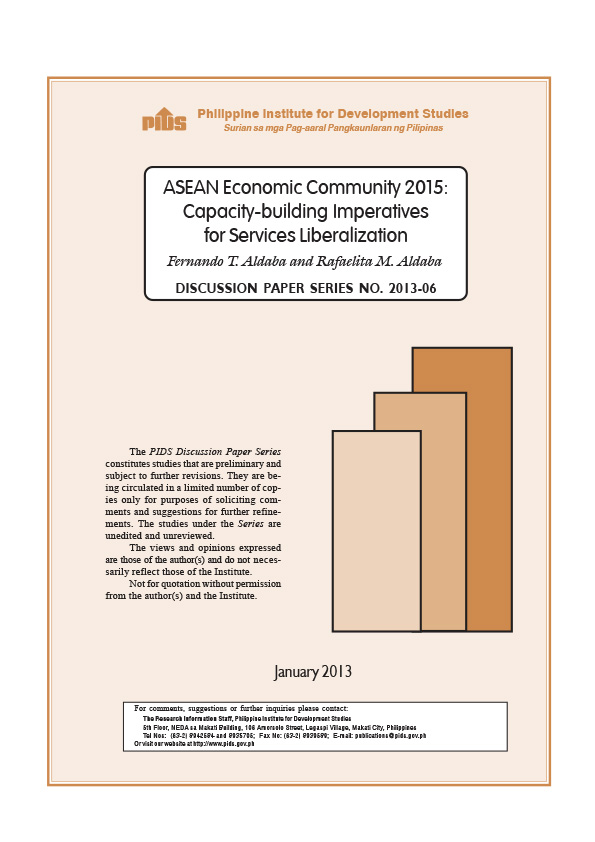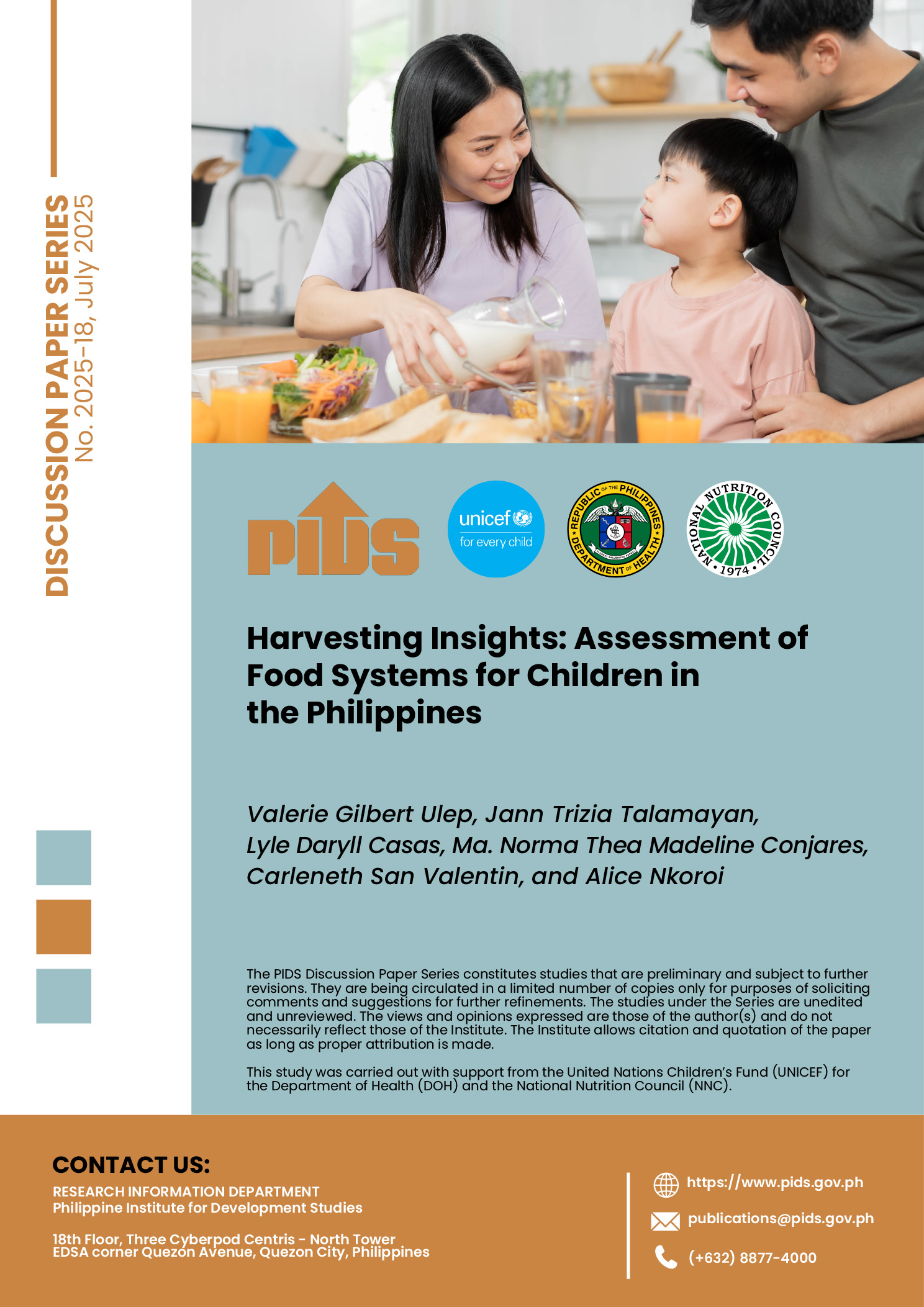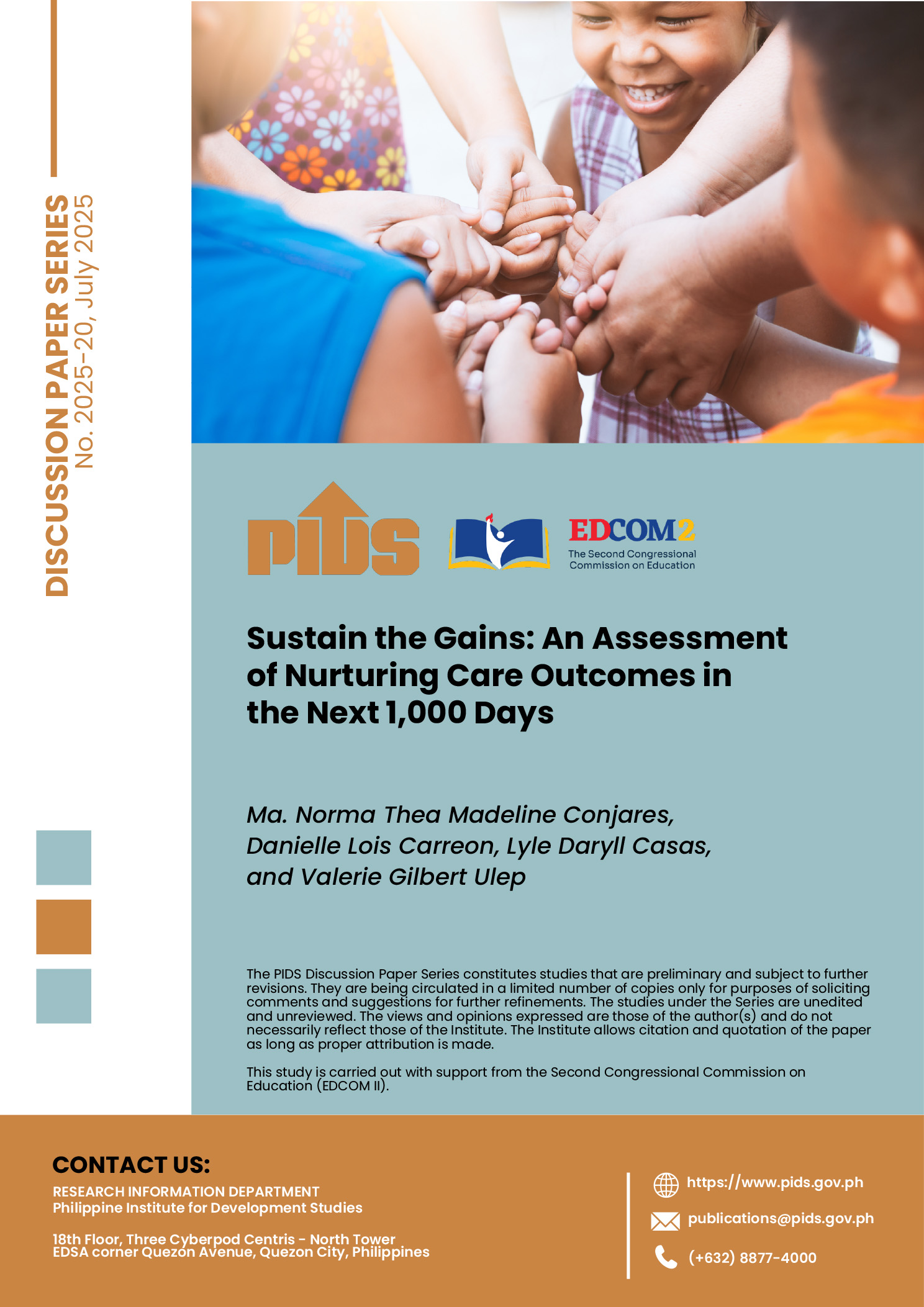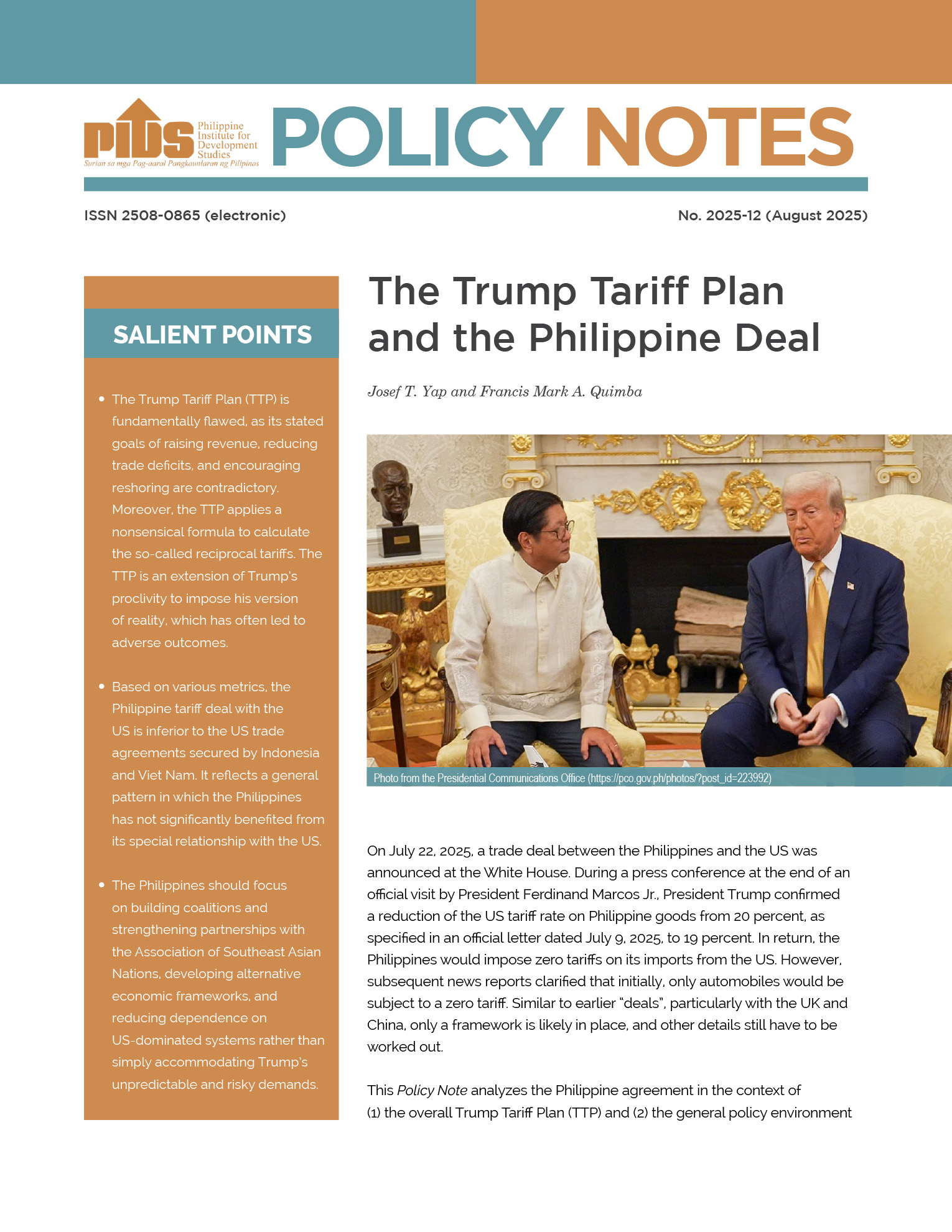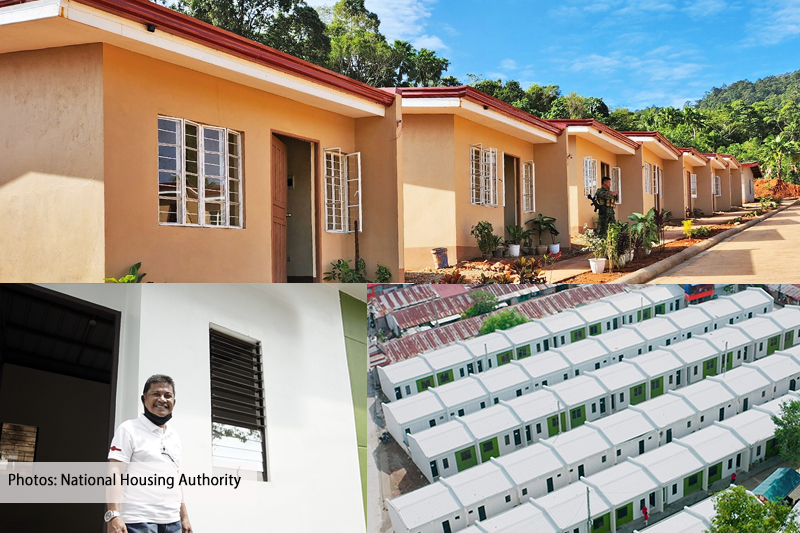The paper aims to assess and determine the capacity-building needs required to liberalize trade in services in the Philippines. Through the ASEAN Framework on the Trade in Services, the Philippines has committed to liberalize various sectors including air transport, maritime transport, construction, financial services, and telecommunications. The country has also signed seven Mutual Recognition Agreements in engineering, nursing, architecture, land surveying, medical, dental practice, and accountancy.
The overall progress of services liberalization has been modest compared to trade in goods. Due mainly to constitutional restrictions, limitations on market access and national treatment are still imposed and foreign service providers continue to be subject to limits on equity participation, participation in the Board of Directors, acquisition of land, and practice of professions. Apart from these constitutional and legal constraints, the other obstacles to services liberalization include high cost of doing business, inadequate infrastructure, and governance issues affecting the competitiveness of industries; inefficient coordination among government agencies involved in trade in services; lack of awareness among key stakeholders of the benefits from services reforms; lack of a comprehensive strategy on services liberalization; and lack of capable staff members in key government agencies.
Clear gaps in the capacity of national agencies and regulators to effectively implement the country`s services liberalization commitments exist. To address these, the paper suggests capacity-building and technical assistance activities covering the crafting of an overall trade in services strategy as part of a more comprehensive trade strategy covering both goods and services; formulating roadmaps for the various services sectors; and enhancing current coordination mechanisms among government agencies and the private/civil society sectors.

